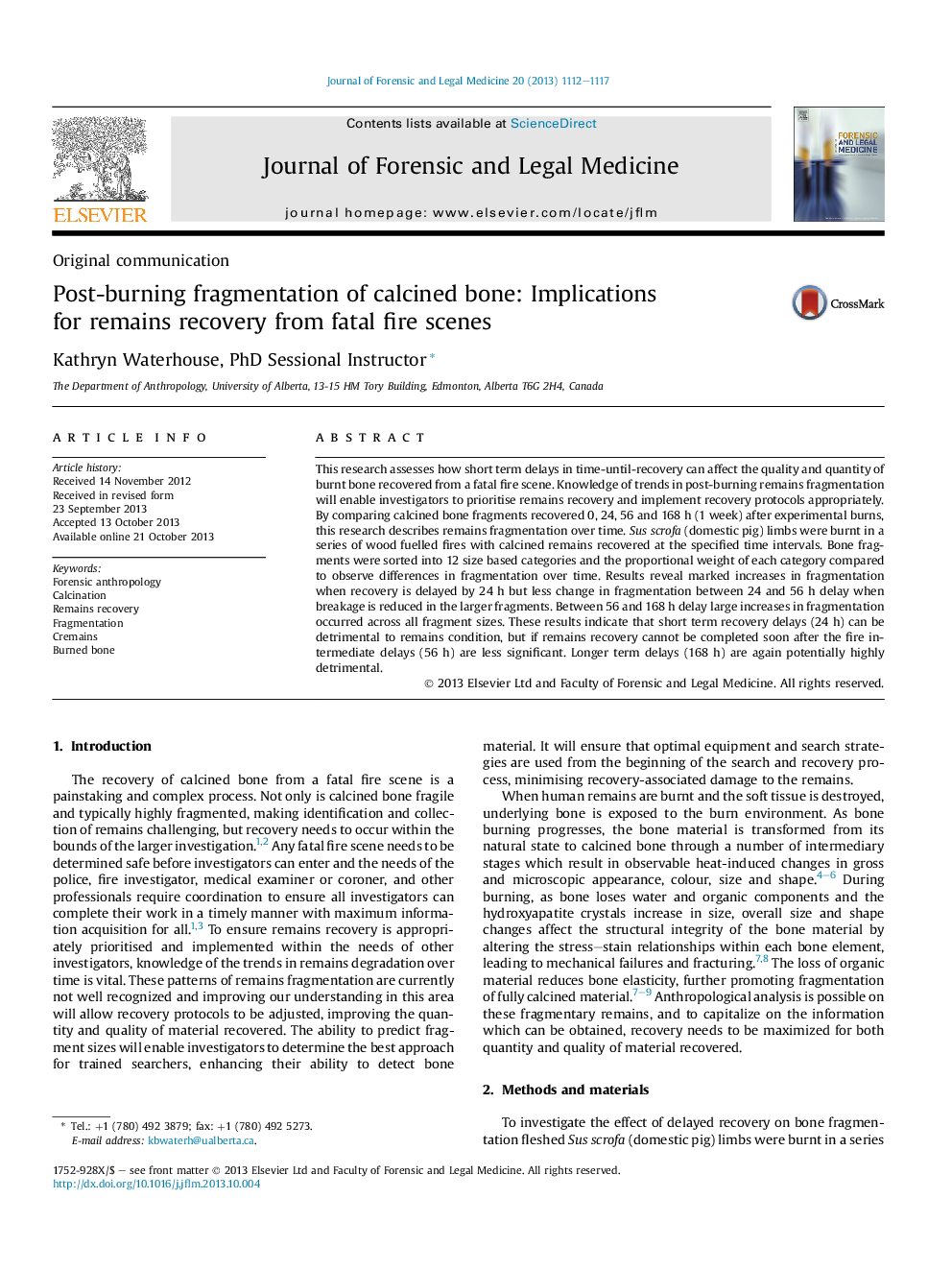| Article ID | Journal | Published Year | Pages | File Type |
|---|---|---|---|---|
| 101971 | Journal of Forensic and Legal Medicine | 2013 | 6 Pages |
This research assesses how short term delays in time-until-recovery can affect the quality and quantity of burnt bone recovered from a fatal fire scene. Knowledge of trends in post-burning remains fragmentation will enable investigators to prioritise remains recovery and implement recovery protocols appropriately. By comparing calcined bone fragments recovered 0, 24, 56 and 168 h (1 week) after experimental burns, this research describes remains fragmentation over time. Sus scrofa (domestic pig) limbs were burnt in a series of wood fuelled fires with calcined remains recovered at the specified time intervals. Bone fragments were sorted into 12 size based categories and the proportional weight of each category compared to observe differences in fragmentation over time. Results reveal marked increases in fragmentation when recovery is delayed by 24 h but less change in fragmentation between 24 and 56 h delay when breakage is reduced in the larger fragments. Between 56 and 168 h delay large increases in fragmentation occurred across all fragment sizes. These results indicate that short term recovery delays (24 h) can be detrimental to remains condition, but if remains recovery cannot be completed soon after the fire intermediate delays (56 h) are less significant. Longer term delays (168 h) are again potentially highly detrimental.
